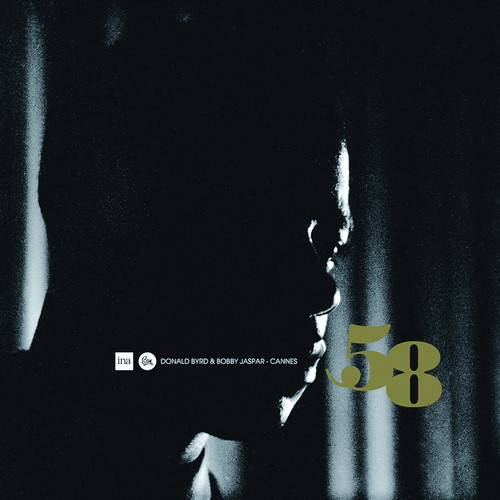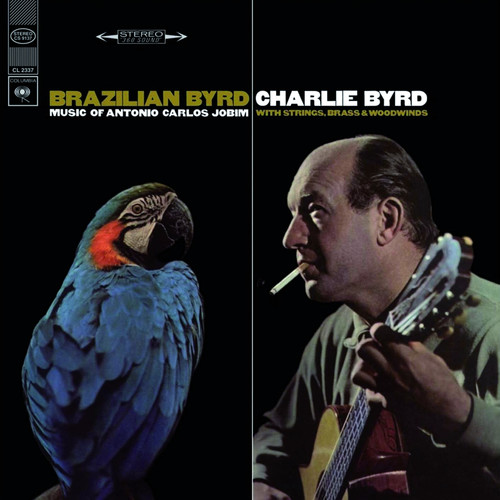In its October ‘58 issue, the title carried by Jazz Hot magazine was: »Revelation at the Chat Qui Pêche. The spirit of jazz (which some thought was dying) is sparkling with life in the Donald Byrd Quintet.« And indeed, on its first appearance at the Cannes Festival in July (the Jazz Festival, not the other one), the Donald Byrd Quintet brought the house down. Its members were hardly the Who’s Who of jazz, however. People vaguely knew that the leader had replaced Kenny Dorham in the Jazz Messengers, that Doug Watkins had played bass with them, and that pianist Walter Davis Jr. had been with Charlie Parker before he was 19. As for Art Taylor, if he’d already enjoyed a career longer than that of his colleagues, it hadn’t yet brought him recognition beyond a small circle of cognoscenti. Only Bobby Jaspar – who’d shone at the Club St. Germain – was famous with the Parisian audience. At the beginning of 1956, he’d decided to try his luck in the United States; J.J. Johnson had hired him, and then Miles Davis (for a brief spell) before Donald Byrd brought him into his own group. After appearing in Cannes (in the sun) and Knokke-le-Zoute (a much smaller audience) for almost three months, the Donald Byrd Quintet settled down for the autumn in one of the capital’s top jazz spots, the Chat Qui Pêche on the Rue de la Huchette. »In that tiny room,« wrote Frank Ténot, »where the owner used to bump into the soloists by accident when she was serving her customers, the music they played was hot, and always surprising.« To crown a tour that had been extremely satisfying for everyone, a concert at the Olympia theatre was organised (there were gigs there called “Jazz Wednesdays”). Byrd and Co. took things very seriously, even though they preserved the relaxed approach that their (relatively) long association now permitted: "La Marseillaise", and "And The Angels Sing" are both present in the introduction to Parisian Thoroughfare played by the two horns. The latter then went on to imitate other horns, those of the cars on 52nd Street ... However, when it came to "Stardust", it was with all the seriousness in the world, almost in meditation in fact, that Donald Byrd improvised over the backing provided by just Walter Davis Jr. and Doug Watkins. Bobby Jaspar, of course, was marvellous. If he showed a marked obedience to Sonny Rollins, he still preserved, intact, the virtues of sobriety that prevented him falling into the trap of serving up torrents of notes in pieces taken at a rapid tempo ("At This Time", for example). During the exchanges on "Formidable", you’d be forgiven for saying that he gets the better of Donald Byrd. As for the complicity that reigned between the members of the rhythm section, it gave the formation a homogenous character that was very rare in a quintet. One can’t thank François Postif enough for taking the risk to release this concert at the time. Now, almost half a century later, one can only agree with Jazz Magazine’s critic on the subject of the Donald Byrd Quintet: »The only thing missing (…) was the consecration that a great concert in Paris would bring. They won that last battle with astounding brio in front of an audience of connoisseurs. There were many there who thought modern jazz had never been so well-served in Paris.«
In der Ausgabe vom Oktober ‘58 lautete der Titel des Jazz Hot Magazine: »Offenbarung im Chat Qui Pêche. Der Geist des Jazz (den einige für tot hielten) ist beim Donald Byrd Quintett lebendig wie nie.« Und tatsächlich, bei ihrem ersten Auftritt beim Cannes Festival im Juli (dem Jazz-Festival, nicht dem andern), hatte das Donald Byrd Quintett stürmischen Beifall geerntet, obwohl man seine Mitglieder kaum als das Who’s Who des Jazz bezeichnen kann. Es war nur vage bekannt, dass der Bandleader Kenny Dorham bei den Jazz Messengers ersetzt hatte, dass Doug Watkins deren Bassist gewesen war und dass Pianist Walter Davis Jr. mit Charlie Parker gespielt hatte, ehe er 19 war. Was Art Taylor betraf, auch wenn er bereits eine längere Karriere als seine Kollegen hinter sich hatte, so hatte sie ihm noch keine Anerkennung jenseits eines kleinen Kreises von Kennern eingebracht. Nur Bobby Jaspar – der bereits im Club St. Germain geglänzt hatte – war beim Pariser Publikum berühmt. Zu Beginn des Jahres 1956 hatte er beschlossen, sein Glück in den USA zu versuchen; J.J. Johnson hatte ihn engagiert, anschließend Miles Davis (für kurze Zeit) ehe Donald Byrd ihn in seine Truppe aufnahm. Nach den Auftritten in der Sonne in Cannes und Knokke-le-Zoute (vor einem viel kleinerem Publikum), die sich über einen Zeitraum von beinahe drei Monaten erstreckten, ließ sich das Donald Byrd Quintett zum Herbst in einem der Top Jazz-Spots der Hauptstadt nieder, dem Chat Qui Pêche in der Rue de la Huchette. »In diesem kleinen Raum,« schrieb Frank Ténot, »wo die Besitzerin regelmäßig, wenn auch versehentlich, die Solisten anstieß, wenn sie ihre Kundschaft bediente, spielten sie heiße und immer überraschende Musik.« Als krönender Abschluss einer Tournee, die bereits äußerst zufriedenstellend für alle verlaufen war, wurde ein Konzert im Olympia organisiert (dort liefen die sogenannten “Jazz Wednesdays”). Byrd und Co. nahmen das Ganze sehr ernst, obwohl sie ihre entspannte Herangehensweise beibehielten, die ihre (relativ) lang andauernde Verbindung ihnen inzwischen erlaubte: "La Marseillaise" und "And The Angels Sing" sind beide gegenwärtig in der Einleitung zu "Parisian Thoroughfare“, gespielt von den beiden Bläsern. Letzterer imitierte in der Folge die Hupen der Autos der 52. Straße ... Als man jedoch zu "Stardust" gelangte, geschah das mit der allergrößten Ernsthaftigkeit, in geradezu meditativer Weise, dass Donald Byrd vor dem Hintergrundspiel von Walter Davis Jr. und Doug Watkins improvisierte. Bobby Jaspar war natürlich großartig. Auch wenn er sich deutlich als in der Gefolgschaft von Sonny Rollins stehend zeigte, hatte er sich doch die Tugend der Nüchternheit bewahrt, die ihn davor bewahrte, in die Falle zu geraten, Kaskaden von Tönen in schnellem Tempo zu spielen ("At This Time" zum Beispiel). Bei den Wechseln in "Formidable" wäre es verzeihlich zu sagen, dass er Donald Byrd übertrumpft. Durch die herrschende Komplizenschaft zwischen den Mitgliedern der Rhythmusgruppe erhielt die Formation einen homogenen Charakter, wie er bei einem Quintett selten vorkam. Man kann François Postif nicht genug danken dafür, dass er damals das Risiko auf sich genommen hat, dieses Konzert zu veröffentlichen. Jetzt, beinahe ein halbes Jahrhundert später, kann man dem Kritiker des Jazz Magazine in Bezug auf das Donald Byrd Quintett nur zustimmen: »Das einzige, was noch fehlte, (…) waren die Weihen, die ein großes Konzert in Paris bringen würde. Diese letzte Schlacht gewannen sie mit überraschender Lebhaftigkeit vor einem Publikum von Kennern. Viele der Anwesenden waren der Meinung, dass moderner Jazz in Paris noch nie so gut präsentiert worden war.«







